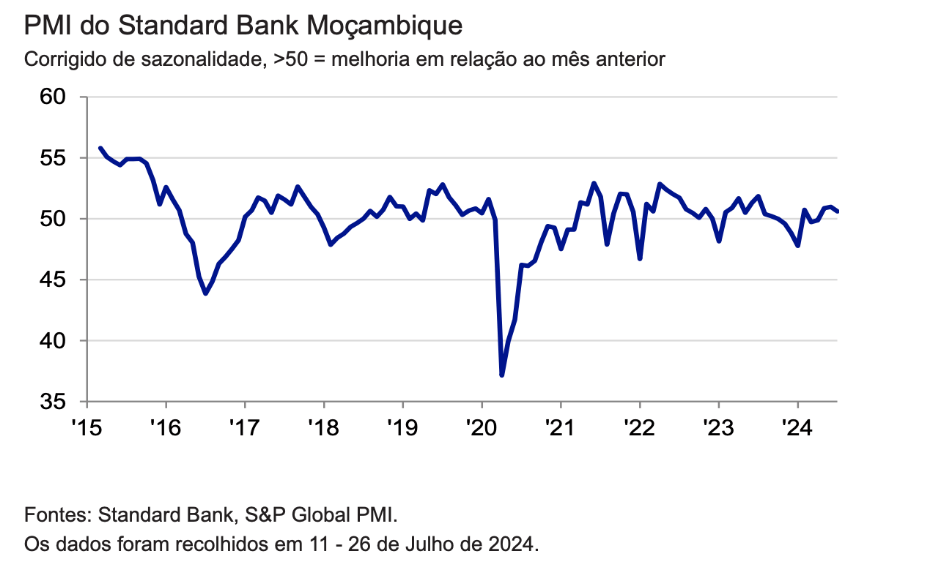Standard Bank’s Purchasing Managers Index™ (PMI) revealed moderate growth in the country’s private sector in July. The index stood at 50.6, slightly below the 51.0 recorded in June, but still above the 50.0 threshold, which indicates continued expansion.
According to a statement from Standard Bank, companies continued to generate further increases in sales, contributing to growth in production, employment and purchasing activity. However, the report points out that the pace of growth has shown signs of slowing. Standard Bank Mozambique’s chief economist, Fáusio Mussá, noted that “the PMI, despite remaining above 50.0, signals a less marked improvement in business conditions.”
In July, new orders increased for the sixth consecutive month, driven by market demand and the attraction of new clients. However, the rate of expansion slowed to the lowest level in three months. The economist commented that “growth in new orders continued, but the pace was the slowest in three months.”
Business activity also grew, with companies responding to the increase in new orders by expanding production. The document indicated that this growth “was moderate, with the agriculture, secondary and wholesale and retail trade sectors standing out.”
Context and Historical Trends
Analysis of the PMI graph shows that since 2015, Mozambique’s private sector has experienced significant variations, with periods of expansion and contraction. In 2020, the index fell sharply, reflecting the impacts of the COVID-19 pandemic. Since then, the PMI has shown a gradual recovery, albeit with fluctuations.

Recent Performance
In July 2024, the index of 50.6 indicates moderate expansion:
- New Orders: New orders increased for the sixth consecutive month, driven by market demand and new customers. However, the rate of expansion of new orders slowed to the lowest level in three months.
2. Production and Employment: Growth in production and employment continued, albeit at a slower pace. Companies responded to the increase in new orders by expanding production, especially in the agricultural, secondary and wholesale and retail trade sectors.
3. Purchasing Activity: Purchasing activity also grew, with companies increasing their purchases to meet growing demand.




